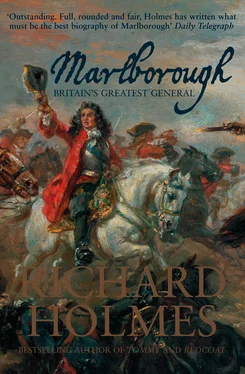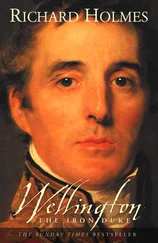1 ...8 9 10 12 13 14 ...42 Seven months later the agent wrote to say that another of the Bruce family’s bastions was under attack:
I was yesterday at Marlborough and find the [Whig] Duke [of Somerset’s] agents very lavish in their expenses and offers. Williams is about paying £30 debts for Solomon Clarke, and almost as much for Flurry Bowshire, so they are wavering. Persons are at work to counterplot them.
When Lord Bruce asked who this Mr Bowshire might be, his agent answered: ‘Flurry Bowshire is he with one eye, and jealous, it is said, of his wife.’ Happily, Solomon Clarke, offered £20 and a job as porter by the duke’s agent, had turned him down, ‘and vowed he would not serve him if he would give him the castle and the barton farm’. 70
Although candidates and their agents did what they could to make bribery less obvious, elections were regularly overturned when disappointed candidates petitioned the Commons, although, oddly enough, the outcome of the challenge often reflected the political balance of the House. Even ‘legitimate’ expenses might raise a modern eyebrow. The Tory magnate Sir Edward Seymour was a Member for the city of Exeter in 1688–89. Before the vote he gave the electors a good dinner of the roast beef of old England, ‘two pieces of rib-beef weighing 96lb at 3d per lb – £1 4s 6d’. After it he distributed ‘25 bottles of sherry … 11 bottles and one pint of canary … 11 bottles of claret …’ Of the total drinks bill of £3.8 s. 4 d , a mere fourpence was spent on ale. 71
There was much more to electioneering than simple bribery, for family influence and local allegiances ran strong. Edward Seymour was a prominent figure in the West Country, colonel of the Devon militia, and men spoke of his ‘Western Empire’. The Tories certainly had it their own way in Cornwall. The county’s sturdy gentry families like the Grenvilles, Slannings and Trevanions had raised some of the very best royalist infantry in the Civil War, and in William’s last Parliament only half a dozen of the county’s forty-four MPs were whiggish. In Devonshire, however, religious dissent was strong, and the Whigs enjoyed the support of the powerful Russell family.
But the Bishop of Exeter was Sir Jonathan Trelawney, baronet, a local magnate in his own right. He was one of the seven bishops tried for their opposition to James II, but one of the two of this number who were prepared to swear allegiance to William and Mary. He was a Tory by upbringing and conviction, and used his power-base to increase his interest. In 1703 he reminded the Tory Earl of Nottingham, one of the two secretaries of state, that he had secured the election of eleven Tory Members, but nothing had so far been done to relieve his ‘numerous family from the burdens of a poor bishopric’. Wondrous to relate, Trelawney soon found himself promoted to the rich see of Winchester, and appointed prelate to the Order of the Garter.
That ‘vigorous and attractive debauchee’, the Whig leader Thomas, Lord Wharton, had, in contrast, a puritan and parliamentarian background, ‘but he owed his scepticism, his engaging manners and his loose morals to the Restoration society in which he had been brought up’. Jonathan Swift, churchman and Tory pamphleteer, hated him ‘like a toad’, but could not help admiring the way in which Wharton, when vigorously assailed by yet another pamphlet, would tell Swift that he had been ‘damnably mauled’ by it, but then chat with him as if nothing really mattered. The Tories made repeated attempts to see him off in a duel, but he disarmed their swordsmen one after another, and always spared their lives.
A contemporary gives us a pen-picture of Wharton wielding interest just as deftly as he did his small sword. He recommended two candidates of his own persuasion for the borough of High Wycombe, only to find that:
Some of the staunch Churchmen invited two of their own party to oppose them and money was spent on both sides … They found my Lord Wharton was got there before them and was going up and down the town with his friends to secure votes on their side. The [Tory] gentleman with his two candidates and a very few followers marched on one side of the street; my Lord Wharton’s candidates and a great company on the other. The gentleman, not being known to my Lord or the townsman, joined with his Lordship’s men to make discoveries, and was by when my Lord, entering a shoemaker’s shop, asked where Dick was? The good woman said her husband was gone two or three miles off with some shoes, but his Lordship need not fear him, she would keep him right. ‘I know that,’ says my Lord, ‘but I want to see Dick and drink a glass with him.’ The wife was very sorry Dick was out of the way. ‘ Well,’ says his Lordship, ‘ how does all thy children? Molly is a brave girl I warrant by this time.’ ‘Yes, I thank you,’ says the woman. And his Lordship continued: ‘Is not Jemmy breeched yet?’
It was all too much for the principal Tory, who ‘crossed over to his friends and cried: “ E’en take your horse and begone; whoever has my Lord Wharton on his side has enough for this election. ” ’ 72
Discussion of the importance of interest has already slid us deep into politics. Political parties as we understand them did not yet exist: there were no formally appointed party leaders, central offices, manifestos, whips or lists of approved candidates. Yet there were most certainly political groupings, and a rancour between them so intense that a Victorian editor of Sarah Marlborough’s papers warned his readers that ‘It is almost impossible to conceive the bitter hatred which they bear to each other, and the atrocious libels against their leaders which the press sent every day into the world.’ 73 I was taught history at a time when Sir Lewis Namier’s views on the politics of the age were very much current. He stressed the importance of connections – groupings based on family or interest – rather than party as we would now understand it. Recent research, especially the painstaking work carried out for the monumental History of Parliament project (whose House of Commons 1690–1715 has proved invaluable), now suggests that party was a good deal more important than Namier believed.
So what did Marlborough and his contemporaries understand by parties? As the historian Tim Harris has so brilliantly demonstrated, the political legacy of the Restoration was a complex one. For a start, it was different in England, Ireland and Scotland, for these three kingdoms were united only in the person of the monarch, and presented distinct problems of their own. In England, with whose politics Marlborough was most intimately concerned, there were two broad groups, each composed of men of similar political persuasions but subject to wide internal disagreement.
On the one hand the Whigs (dubbed ‘the party of movement’ by our Victorian editor, who saw them as the ancestors of the radicals of his own age) had welcomed the return of Charles II but emphasised that he had been called back by Parliament, and believed that the monarch should rule according to law. The Whigs were the least homogeneous of the parties, for they were an alliance of nonconformist churchmen at one end of the spectrum, and grandees at the other, their most notable figures known as the ‘Lords of the Junto’ in the first decade of the eighteenth century. * The more astute Whig leaders, like Lord Wharton, recognised that if they were to succeed it would be by a political organisation which their rivals lacked. On the other hand the Tories applauded the restoration of a monarch sanctified by God, and although most of them expected him to obey the law, they believed that there were times when he could use his royal prerogative to override it. Some High Tories went further, arguing that he held his throne by divine right and was accountable only to God, and not to man.
Читать дальше












